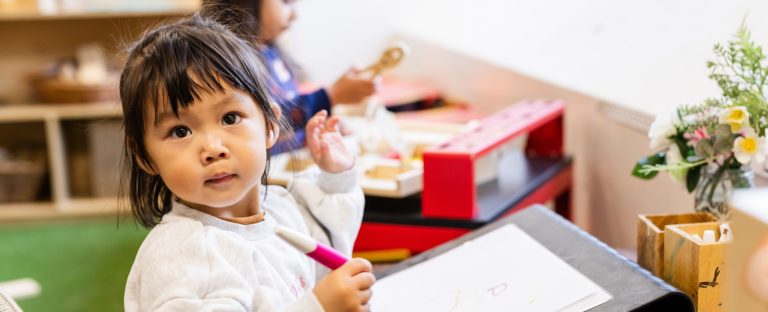We understand this time of year can be really difficult as children start care and move to a new room. They are also returning from a 2 week break where they have had Mum, Dad or Grandparents all to themselves. Like us, returning to routine can take time to adjust!
Handing over your child, who maybe crying and clinging tightly to your leg or neck can be difficult for parents. While this farewell can be heart wrenching … it is completely normal.
Separation anxiety is when a child becomes upset or distressed as they do not want to be separated from their parent / carer. It doesn’t mean they don’t (or won’t) enjoy coming to the centre… they just need to build relationships & attachments with their educators. Separation anxiety is usually at its peak around 6-7 months and 14-18 months of age.
For some children, they might settle within seconds of the parent/ carer leaving the room. For others, they might experience bursts of emotion throughout the day. Depending on the child’s temperament, developmental needs and /or age, separation anxiety might last for a total of a few weeks … or many months (even when they have an attachment to their educators). While there is no ‘one-size’ fits all approach or expectation, there are several things families can do at home and centre to support their child to feel safe and settled.
Strategies for Families
- Hand your child over to a familiar educator in the morning and let them know how their morning has been.
- Pop up your child’s educators’ photos on the fridge and chat about them when you’re at home.
- Bring in an attachment item to connect them to home. This might be a comforter, teddy, even a family photo.
- Keep drop off positive and short… “you’re going to have a great day, I’ll be back soon, love you…” Once you say goodbye or leave the room it is best not to return. While this alleviates your child’s anxiety for that moment, the next time you leave the anxiety will be even more intense for them.
- It can be very tempting to just take your child back home. We strongly encourage you to work with educators to support your child to stay. Taking your child home when distressed can reinforce this anxiety and some learn very quickly … ‘when I cry, Mum / Dad takes me home’.
- Put on your best brave face! Our emotions, facial expressions and words will influence how children feel. At times, we need to fake it to make it!
- If at any time your child’s separation anxiety concerns us, we will communicate this with you and set up support strategies.
- We also encourage you to please discuss your concerns with your child’s educator or service Director.



